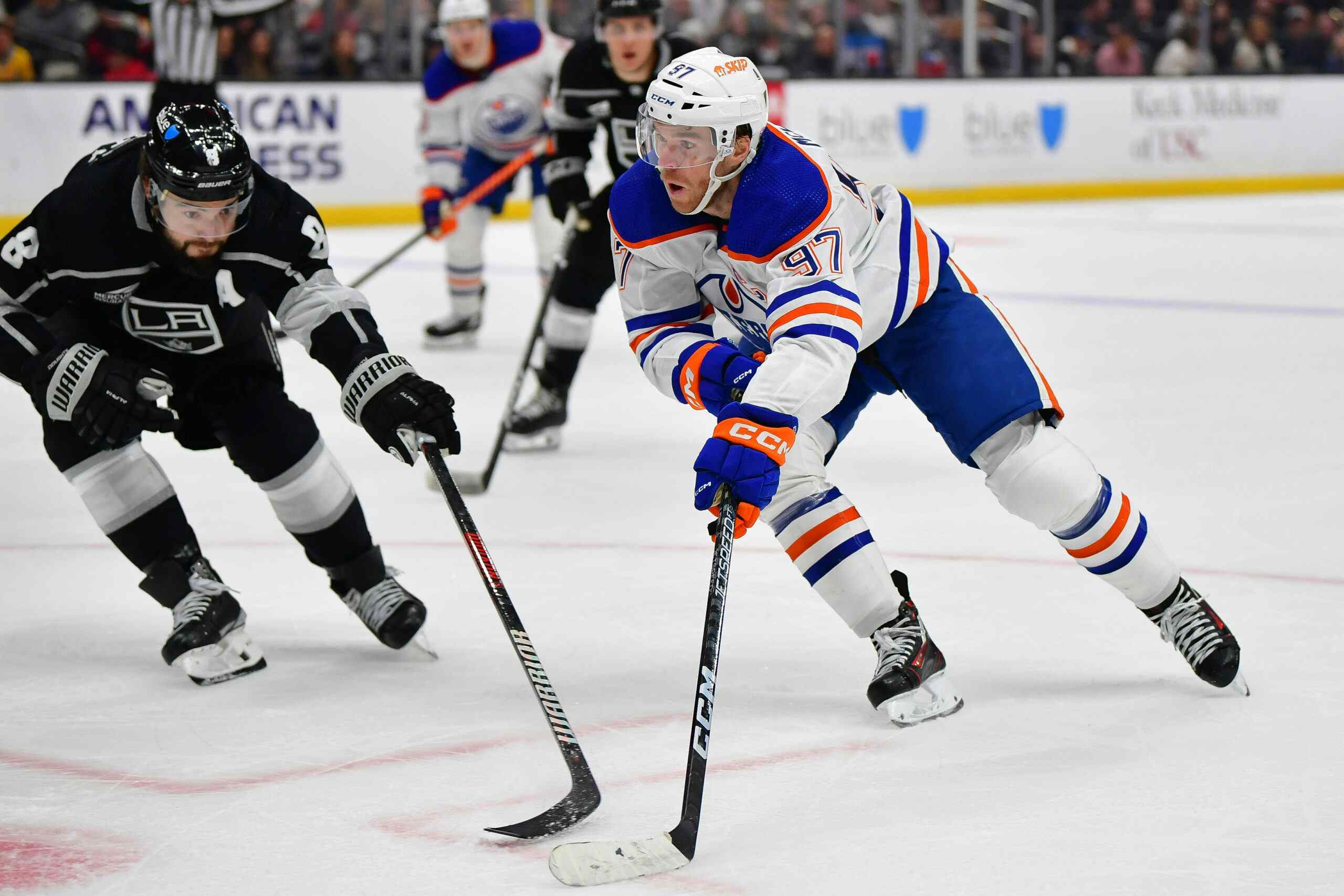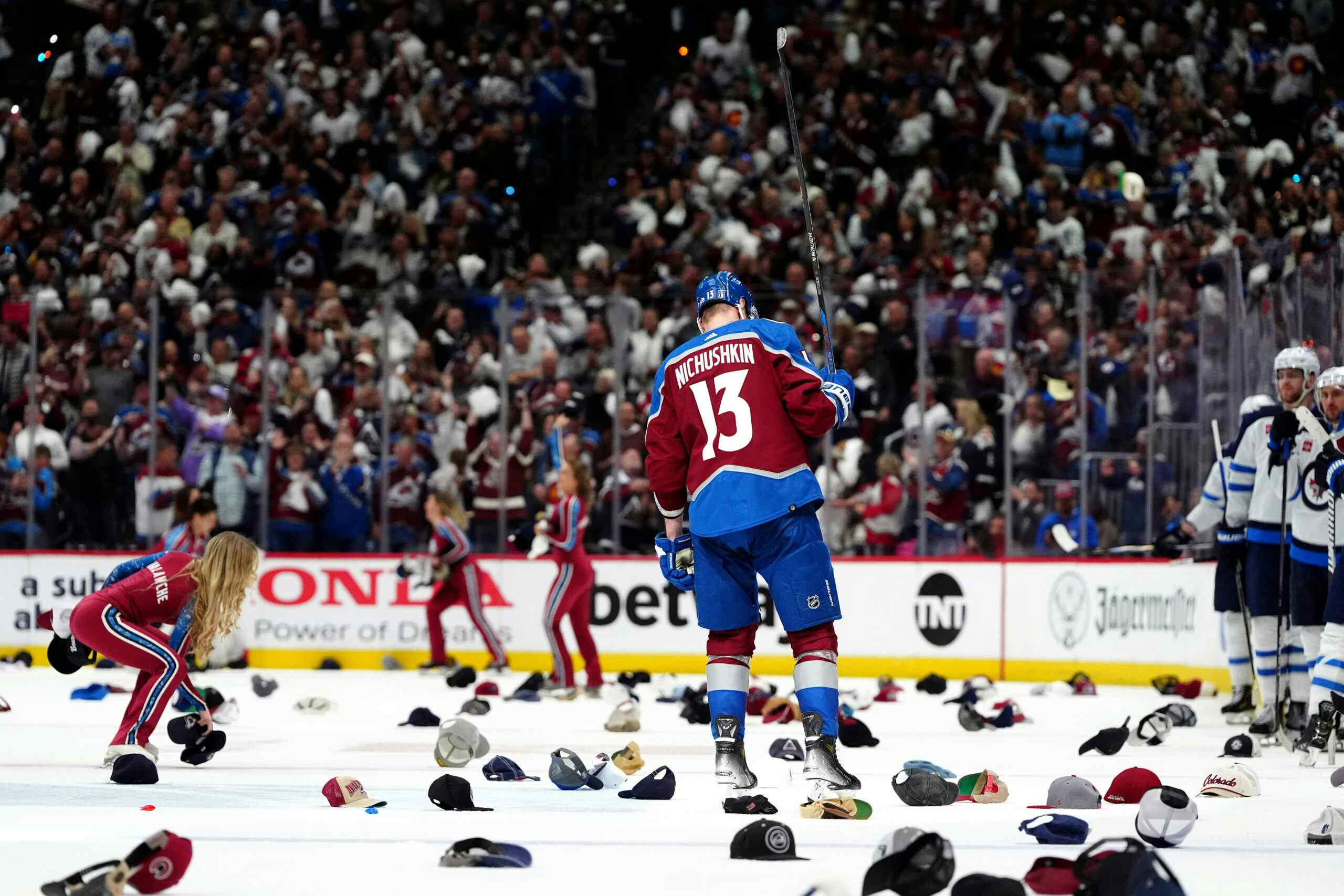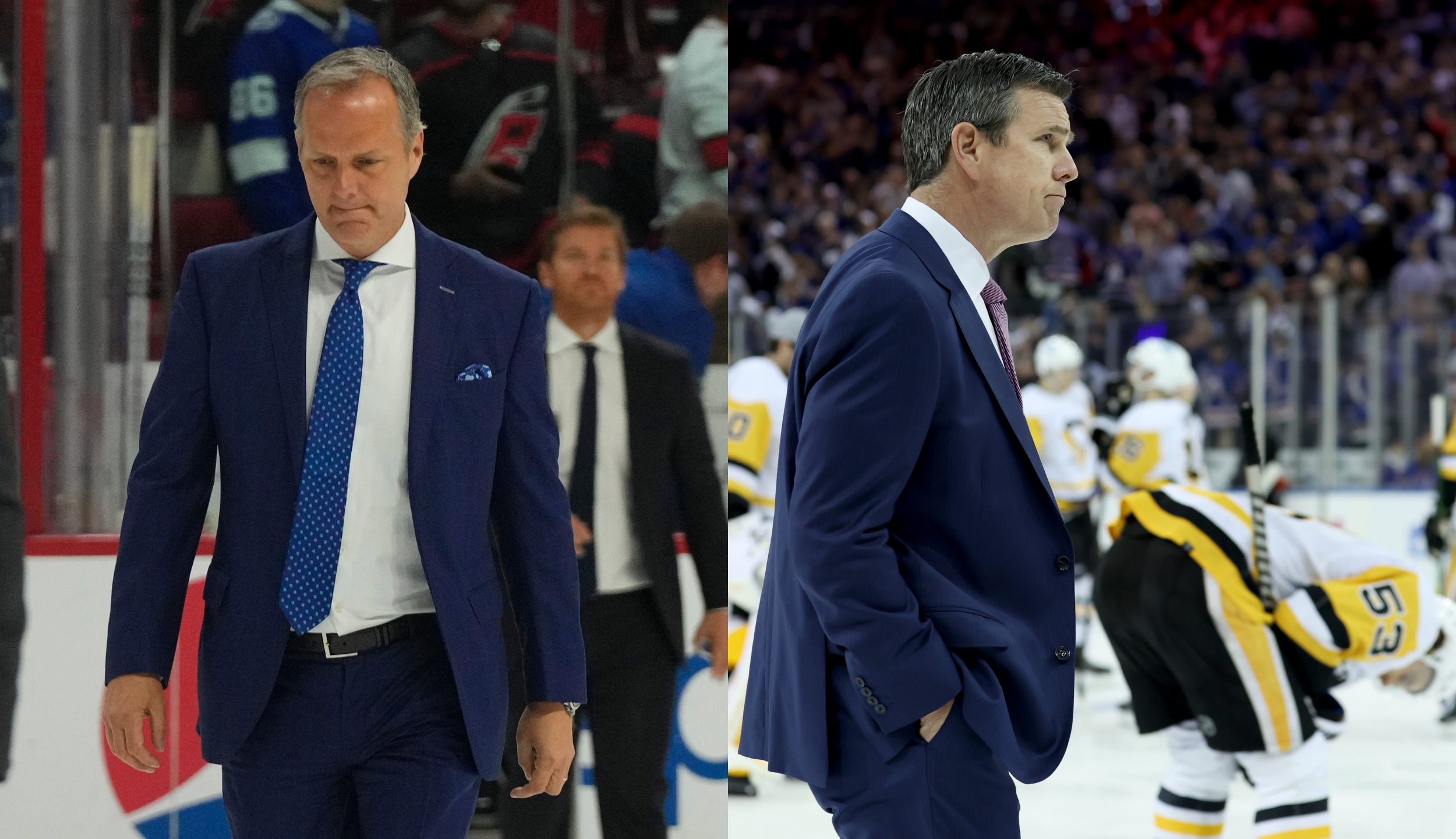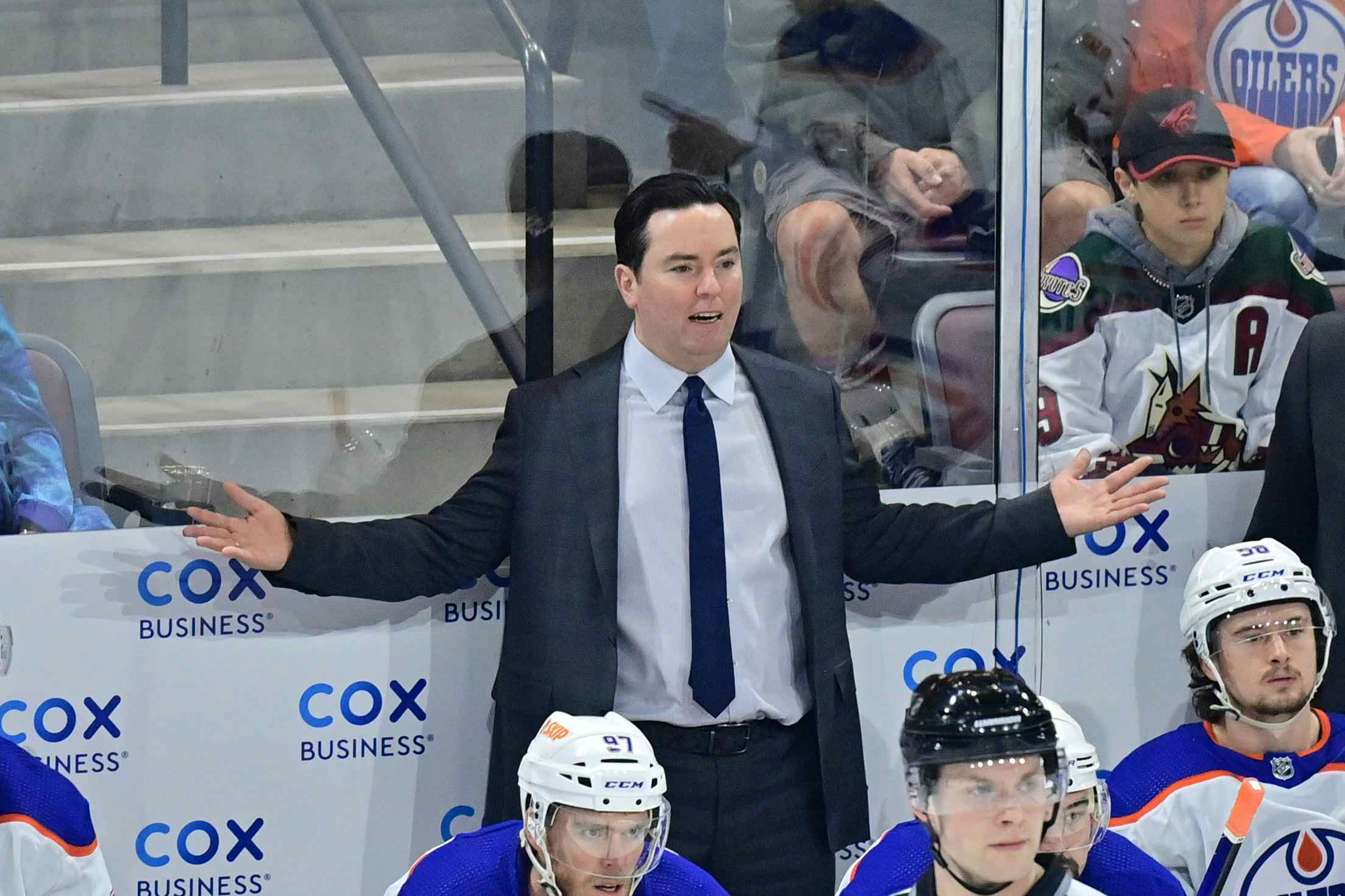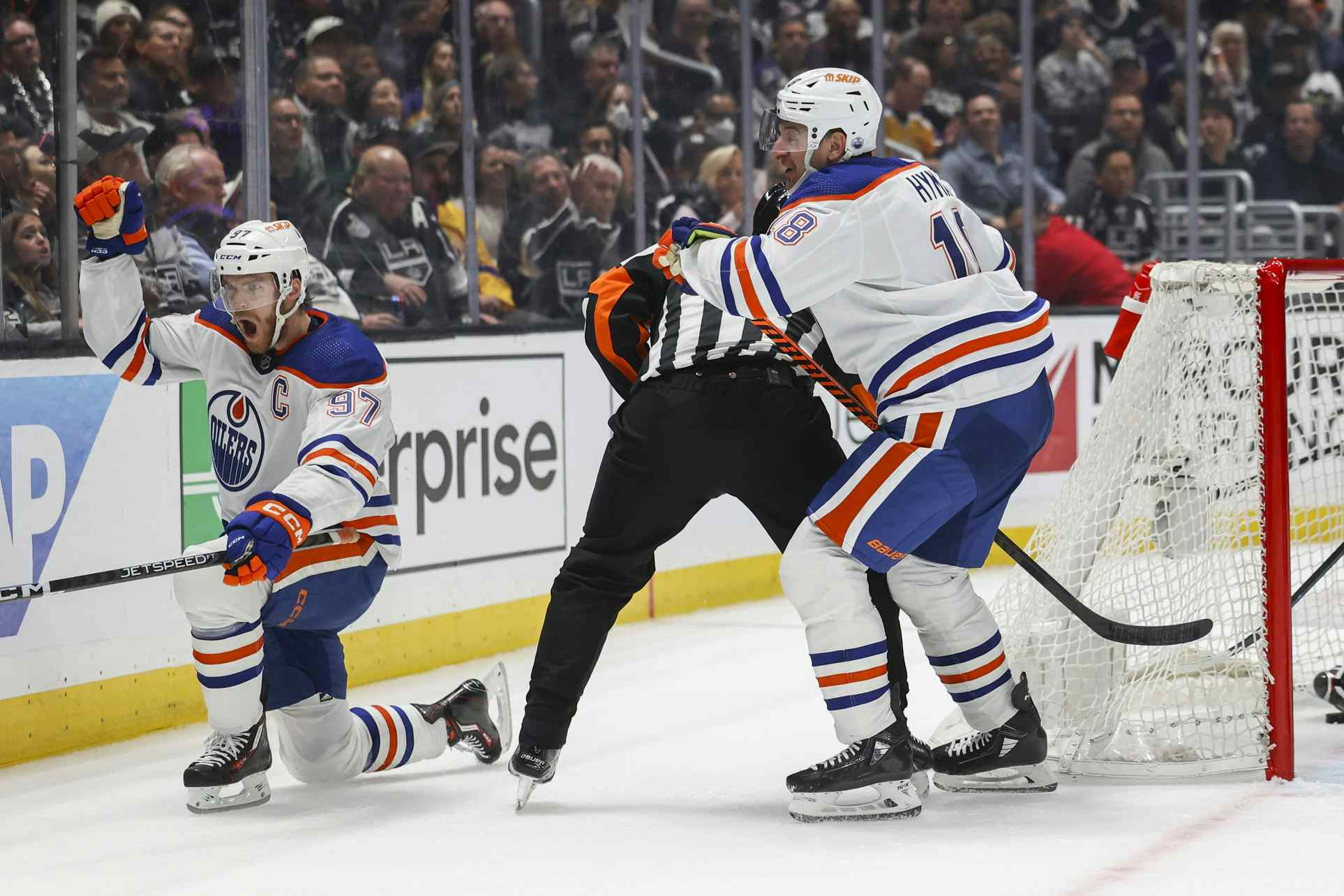Shawn Horcoff Puts On His G.M. Hat
The Oilers did their year-end interviews today, and there’s a lot of interesting stuff to wade through – I imagine both Robin Brownlee and Jason Gregor will have a bunch of material up based on them. There were bits and pieces to pick out of pretty much all the interviews, but I thought some of Shawn Horcoff’s thoughts deserved special attention because he takes a big-picture view that isn’t overly common for NHL players.
I’ve highlighted some quotes in particular that reflect on the big-picture view of the Oilers. There’s other interesting stuff I’m omitting – Horcoff talks about the attitude in the room, addresses the lack of a salute at the last home game, the coaching, and a bunch of other stuff too.
Special Teams
There were a lot of areas that we did improve on this year. I thought our special teams, certainly, were much better. Our PP was – I think we finished second or third – and our PK was in the top half of the league. Those numbers, to have those numbers, it was a little surprising to finish with the points that we had. I don’t think that really makes a whole lot of sense; in the past when we’ve had good special team numbers like that usually we finish with higher points. Obviously that shows we need to improve on our five-on-five play more. If we can come back and have those same numbers special team-wise next year we should be able to make a dramatic increase. I think, having said that, it’s up to everyone to come back.
Edmonton finished third on the power play and 14th on the penalty kill. Vancouver, Nashville and Pittsburgh were the only other teams in the league to finish with a top-5 PP and a top-15 PK. Vancouver was the only team to do it last season. Montreal, Philadelphia and San Jose managed it in 2009-10.
It’s a point that deserves to be made: in terms of special teams, the Oilers were well-positioned to be successful. If they can maintain those special teams (which might be a tall order, particularly on the power play) then yes, they certainly could be poised for a big leap forward next season – provided they fix the problems 5-on-5.
Change
I think we’re obviously going to be a year older, a year more experienced, we’re going to have another top pick in the organization. Obviously there’s July 1st and there’s trades, both possibilities that can be done to change things. Obviously finishing 29th again you can’t expect to see the same team back and there’s obviously – I’m sure management sits down and talks about the improvements they want to make and you have to expect some changes.
Entering a new collective bargaining agreement, it’s going to be interesting to see what happens next year. Regardless, Horcoff here identifies four areas where the team should improve, year-over-year: via 1) increased experience for the young players 2) another top pick at the draft 3) free agency and 4) trades. It will be up to Steve Tambellini (barring the unexpected) to ensure that the latter two avenues are used correctly.
Tight Games
That’s where experience comes in, I think; we have to find ways to win these tight games. We lost a lot of games this year by one goal or gave up leads in third periods and weren’t able to close them out. I think as we go on if we can get a little more mentally strong in those areas and be a little less stubborn – I think we gave a lot of teams easy offensive times when the game didn’t call for that. We relied on our goaltending and our defensive play a little too much.
The Oilers were outscored 62-to-59 in the first period this year, outscored opponents 84-to-81 in the second period, and were blown out of the water 86-to-62 in the third. Some of that is the result of empty nets, but even removing empty net goals from the equation the Oilers were outscored 74-to-55 in the third.
Two-way Play
It doesn’t matter how offensively gifted you are, defense in the playoffs is going to win. I think it’s been proven year-in and year-out from every team that won, their best players are able to play at both ends of the ice. They’re guys that at the end of the day are going to be able to go out there and outplay the other team’s top line. The good news is that we have that ability in here. The future is very bright with those three guys right now and going forward. We have a lot of other young guys that are going to come up and push for spots and I think it’s a good thing. The good news is that they’re good professionals already. They’re becoming better and better, daily, learning how to deal with the grind and the situation of playing more minutes. They’re going to have to get up and get used to playing 18, 19, 20 minutes a night and playing some nights where you’re not going to be 80%, you’re going to be fatigued.
That’s obviously the logical step – being able to go out there and still be able to produce and play against other team’s top lines. I think towards the end of the season you started to see that at least a little bit more. But it’s nice to have some depth, it’s nice to be able to handle that with two, three different lines, it’s not just one line. It’s been like that; I’ve been in that situation where just the one line has to deal with the other teams’ top lines every night and it makes it tough. If you have two/three lines that can shoulder the load that’s going to make your team even more dangerous and deeper and I think we have that ability here.
Horcoff’s not wrong here, either. Both Boston and Vancouver had two of the great two-way centres in the game with Patrice Bergeron and Ryan Kesler last season. Chicago and Philadelphia had Jonathan Toews and Mike Richards. Detroit and Pittsburgh had a laundry list of two-way forwards that’s hard to mention here. It’s not a question of whether or not Nugent-Hopkins, Hall and Eberle have that ability; it’s a question of them reaching their potential in those areas, playing against excellent players all the time.
Size and Grit
Every team wants size and grit, let’s be honest – that’s a given. I think we have some – I though Harty came up and played that role really well. I think it really is defined by how you build your team – you look at teams like Philly and Boston, they kind of have that, other teams like maybe Detroit, Pittsburgh, even Chicago maybe, they don’t really have that up front. They kind of have more skill. I think it’s going to be defined on how you want to build your team. I think that’s why – it’s hard to get those guys, there’s only so many out there, and really there’s not that many. I think you either have them or you don’t, and if you’re trying to get them you’ve got to give up an awful lot to do that. It’s nice to try and build that from within your organization, but you do what you can.
It’s almost like Lowetide and Horcoff got together for their messaging on this one. Just yesterday, Lowetide wrote about how difficult it is to find these players. Horcoff acknowledges that every team likes to have these guys, but that some teams can win without a Milan Lucic-type, and realistically teams can overpay for those guys or try to develop them internally.
Recently at Oilers Nation
Recent articles from Jonathan Willis

